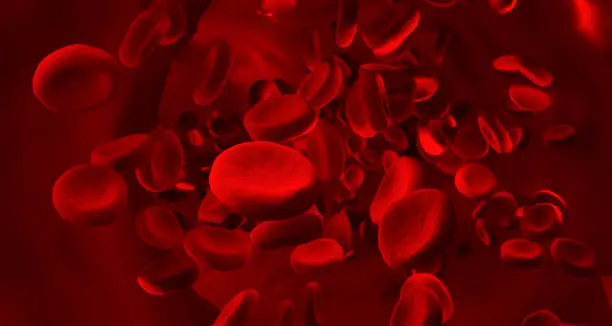Your body is a masterpiece of biology—intricate, intelligent, and constantly communicating with you. It has its own way of sending signals when something is out of balance. Fatigue that lingers despite rest, brittle nails that crack easily, or mood swings that arrive without warning—these are not random inconveniences. They are the whispers of your body, often hinting at hidden nutrient deficiencies.
In a world overflowing with processed food, busy lifestyles, and quick fixes, many of us unknowingly run low on essential vitamins and minerals. The human body is designed to thrive on a delicate orchestra of nutrients, each one playing a role in energy production, immunity, mental clarity, and overall vitality. When even one note goes missing, the music of health can falter.
Nutrient deficiencies are not just about malnutrition or poverty—they affect people everywhere, across all walks of life. Even in developed nations where food is abundant, diets high in sugar, refined grains, and fast food can leave people undernourished. The result? A population that may appear fed but is far from truly nourished.
So, what are the signs that your body is trying to tell you it needs help? Let’s journey into the fascinating world of nutrient signals, where science meets everyday life, and uncover the top signs that point to deficiencies.
Understanding Nutrients: The Foundation of Health
Before diving into the signs, it’s important to understand what nutrients are and why they matter. Nutrients are the essential compounds that fuel life—vitamins, minerals, proteins, fats, and carbohydrates. Some provide energy, some build and repair tissues, and others regulate countless biochemical processes that keep us alive.
Unlike plants, which can produce many of their nutrients through photosynthesis, humans rely on external sources—food and sometimes supplements. That makes us highly dependent on the quality of what we consume. When nutrients are missing, the consequences ripple across the body, from sluggish energy metabolism to weakened immunity, brittle bones, and even cognitive decline.
The body cannot always store large amounts of vitamins and minerals. Water-soluble vitamins like vitamin C and most B vitamins, for example, must be replenished daily. Minerals like iron, magnesium, and zinc are constantly being used in metabolic processes. This means deficiencies can develop sooner than we realize if our diet falls short.
Now, let us explore the top signs of nutrient deficiencies, each backed by scientific insight, real-world impact, and a closer look at how to restore balance.
Constant Fatigue: The Cry for Energy Nutrients
Fatigue is one of the most common and overlooked signals of nutrient deficiency. When exhaustion persists despite adequate sleep, your body may be pleading for specific vitamins and minerals.
Iron deficiency is the leading cause of anemia worldwide, leaving cells starved of oxygen. Without iron, hemoglobin cannot transport oxygen efficiently, and fatigue becomes inevitable. Similarly, deficiencies in vitamin B12 and folate impair red blood cell production, compounding the problem.
Magnesium is another key player in energy metabolism, involved in more than 300 enzymatic reactions. When magnesium runs low, muscles cramp, sleep becomes restless, and fatigue deepens. Vitamin D deficiency, too, has been linked to low energy, partly due to its role in mitochondrial function.
When fatigue takes hold, it is not always laziness or overwork—it is often biology waving a red flag.
Brittle Nails and Hair Loss: Signs Written in Keratin
Our nails and hair are often the first to show signs of nutrient deficiencies because they grow rapidly and rely on a steady supply of building blocks.
Brittle, splitting nails can point to iron deficiency, while spoon-shaped nails (a condition called koilonychia) are a classic sign of advanced anemia. White spots on nails may suggest zinc deficiency, as zinc is crucial for cellular repair and protein synthesis.
Hair loss, especially diffuse thinning, can be linked to deficiencies in iron, zinc, biotin, and protein. Biotin, a B-vitamin, is particularly important for keratin production—the protein that forms hair, nails, and skin. Low vitamin D can also impair hair follicle cycling, leading to thinning.
While hair and nail issues can stem from stress or genetics, when they appear suddenly or worsen over time, nutrition deserves close attention.
Pale or Yellow-Tinged Skin: A Canvas of Nutritional Status
Skin is not only our largest organ but also a visible indicator of inner health. Pale, washed-out skin may signal iron or vitamin B12 deficiency, both of which reduce red blood cell levels. Without sufficient hemoglobin, skin loses its rosy hue.
A yellowish tinge can arise from vitamin B12 deficiency, which leads to megaloblastic anemia and breakdown of red blood cells, releasing bilirubin into the bloodstream. Similarly, inadequate vitamin A can dry out the skin, while low vitamin C impairs collagen production, causing it to bruise and tear easily.
Healthy, vibrant skin thrives on nutrients. When deficiencies exist, the skin becomes a canvas reflecting those inner imbalances.
Frequent Illness: The Immune System’s Distress Call
If you catch colds often or take unusually long to recover from infections, your immune system may be undernourished. Nutrients are the architects and defenders of immunity.
Vitamin C enhances white blood cell activity and strengthens skin barriers. Vitamin D modulates immune responses, helping prevent both infections and autoimmune flare-ups. Zinc is essential for immune cell development and communication, while iron supports the proliferation of immune cells.
Without these nutrients, your body’s defenses weaken, making you vulnerable not just to minor colds but also to more serious infections. Frequent illness is the immune system’s way of asking for reinforcement.
Bleeding Gums and Easy Bruising: The Collagen Connection
Oral health can be a direct reflection of nutrient balance. Bleeding gums, especially when brushing, often signal vitamin C deficiency. Vitamin C is indispensable for collagen synthesis, and without it, blood vessels become fragile and gums inflamed—a hallmark of scurvy in severe cases.
Easy bruising is another telltale sign, indicating weakened connective tissue and blood vessel walls due to insufficient vitamin C or vitamin K. Vitamin K is necessary for proper blood clotting, and its deficiency can lead to prolonged bleeding and spontaneous bruising.
Your gums and skin are more than cosmetic concerns—they are windows into your nutritional status.
Muscle Cramps and Weakness: The Electrolyte Imbalance
Muscles are highly sensitive to nutrient levels, particularly electrolytes like magnesium, potassium, and calcium. These minerals are vital for muscle contraction and nerve signaling.
When magnesium is deficient, muscles cramp, twitch, and spasm. Potassium deficiency, often caused by dehydration or diuretic medications, can lead to weakness, arrhythmias, and even paralysis in severe cases. Low calcium contributes not only to cramps but also to brittle bones and dental problems.
These symptoms are not random—they are the body’s way of warning that its mineral reserves are running low.
Vision Problems: When Eyes Reflect Deficiencies
Your eyes, often called the windows to the soul, also serve as mirrors of nutrient health. Poor night vision or difficulty adjusting to darkness can indicate vitamin A deficiency, as this vitamin is essential for producing rhodopsin, a pigment in the retina.
Dry eyes, a gritty sensation, or frequent infections of the eye can also be linked to low vitamin A or omega-3 fatty acids, which maintain tear production and anti-inflammatory balance.
Meanwhile, blurred vision or cataract development has been associated with deficiencies in antioxidants like vitamin C, vitamin E, and zinc, all of which protect eye tissues from oxidative damage.
Healthy vision depends on nourishment, and when it falters, nutrition should be considered alongside eye care.
Mood Swings, Anxiety, and Depression: Nutrition of the Mind
Mental health is profoundly tied to nutrition, even though the connection is often overlooked. Neurotransmitters—the brain’s chemical messengers—depend on nutrients for their production.
For example, serotonin (the “feel-good” neurotransmitter) requires tryptophan, vitamin B6, and magnesium. Dopamine, linked to motivation and pleasure, depends on iron, folate, and vitamin B12. Deficiencies in these nutrients can disrupt brain chemistry, leading to mood swings, anxiety, and depression.
Omega-3 fatty acids, found in fish oils, are also critical for brain cell membranes. Low levels have been consistently linked to mood disorders and cognitive decline.
When emotional turbulence arises without clear cause, the brain may be signaling its need for nourishment.
Numbness and Tingling: The Neurological Clues
Pins and needles, numbness, or tingling sensations in the hands and feet can be more than just circulation issues. They are classic signs of vitamin B12 deficiency, which damages the protective myelin sheath around nerves.
Folate and vitamin B6 deficiencies can also contribute to neuropathy, as they are crucial for nerve function and homocysteine regulation. Prolonged deficiency can cause permanent nerve damage, making early detection vital.
When nerves start to whisper with tingling and numbness, it is time to listen carefully.
Cravings and Unusual Eating Habits: Signals of Deficiency
Strange food cravings or even non-food cravings (a condition known as pica) can reveal hidden deficiencies. Craving ice, dirt, or chalk has been linked to iron deficiency anemia, though the mechanism remains unclear.
Salt cravings may point to adrenal insufficiency and low sodium balance, while a strong desire for chocolate may sometimes signal magnesium deficiency. Sugar cravings, though often habitual, can also indicate blood sugar imbalances tied to chromium deficiency.
Cravings are the body’s instinctive, if imperfect, attempts to restore balance.
Slow Wound Healing: The Body’s Repair Delay
When cuts, scrapes, or surgical wounds take unusually long to heal, nutritional deficiencies may be at play. Protein is essential for tissue repair, while vitamin C ensures collagen synthesis and immune defense.
Zinc, too, is vital for wound healing, as it promotes cell growth and regeneration. Low zinc levels can stall recovery, leaving wounds open longer and more vulnerable to infection.
Healing is one of the body’s most energy-intensive tasks, and it requires a full arsenal of nutrients to succeed.
The Complex Web of Multiple Deficiencies
One of the challenges of recognizing nutrient deficiencies is that symptoms often overlap and stem from multiple shortages. Fatigue, for example, may be due to iron, B12, vitamin D, or magnesium deficiency—or a combination of them. Hair loss could result from iron, zinc, biotin, or protein shortages.
This complexity means that self-diagnosing based on symptoms alone can be misleading. Blood tests, medical history, and dietary analysis are crucial for uncovering the true picture. Still, recognizing the signs is the first step toward awareness and action.
Restoring Balance: Nourishing the Body Back to Health
The good news is that many nutrient deficiencies can be corrected with mindful changes in diet and lifestyle. Whole foods—fruits, vegetables, legumes, nuts, seeds, lean proteins, and whole grains—are the richest sources of essential vitamins and minerals.
Sunlight exposure boosts vitamin D production, while fermented foods support gut health and nutrient absorption. Supplements may be necessary in certain cases, such as iron for anemia, B12 for vegans, or vitamin D in low-sunlight regions, but they work best when guided by medical advice.
Equally important is addressing the root causes—stress, digestive issues, medications, or lifestyle habits—that interfere with nutrient absorption. A holistic approach ensures lasting results rather than temporary fixes.
The Future of Nutritional Health
Advances in science are making it easier to detect and prevent deficiencies. Personalized nutrition, based on genetic testing and microbiome analysis, promises to tailor diets to individual needs. Wearable technology may one day track nutrient levels in real time, alerting us before deficiencies even develop.
Yet, amid all this progress, one truth remains timeless: food is medicine. The nutrients we consume daily are the foundation of vitality, resilience, and longevity. Technology may guide us, but the wisdom of eating balanced, wholesome food is irreplaceable.
Conclusion: Listening to Your Body’s Whispers
Your body is always speaking. Fatigue, brittle nails, mood swings, or numbness are not random inconveniences but meaningful messages. They are whispers of imbalance, asking for attention, nourishment, and care.
Health is not about perfection—it is about connection: listening to your body, honoring its needs, and providing it with the nutrients that fuel life. When you nourish yourself fully, you do more than avoid disease—you unlock the potential for vibrant energy, emotional clarity, and a thriving life.
The signs of nutrient deficiencies are the body’s quiet language. The question is: are you listening?






